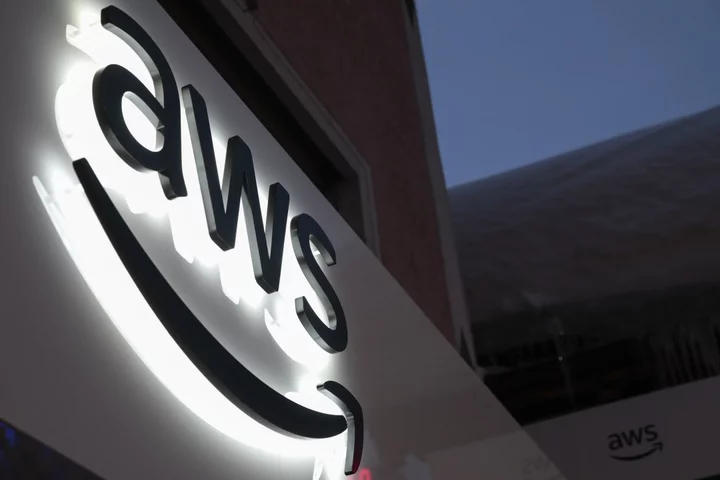Salesforce Inc. will begin selling most of its best-known apps on Amazon Web Services’ marketplace as the company seeks to expand “self-service” purchases and cut down on costs.
Salesforce customers will be able to pay using credits on AWS Marketplace, Salesforce Executive Vice President Patrick Stokes said in an interview. The agreement will also make it easier for its customers to integrate AWS data into Salesforce products and use generative AI tools more effectively, he said.
Listing on AWS Marketplace furthers Salesforce’s goal of generating more sales that don’t require the help of sales representatives to cut down on labor costs. “We need to be doing more of that,” Brian Millham, the company’s chief operating officer, said in a September interview when asked about his plans to reduce expenses. Stokes said Salesforce is looking at more channel-sales opportunities and could explore similar partnerships with other major cloud platforms like Microsoft Corp. or Alphabet Inc.’s Google.
Amazon boasts that its marketplace helps companies reach hundreds of thousands of customers. “Our goal is that any software products you want to use in the cloud, you can purchase and fulfill through the marketplace,” AWS Senior Vice President Matt Garman said in an interview. Critics, however, have compared the platform to a smartphone app store that effectively places a tollbooth between software firms and their customers without adding much value.
Amazon, which takes a cut of revenue made through the marketplace, has for years nudged its cloud customers to list their products on the platform. “We had a lot of support from AWS to really go make this happen,” Stokes said, noting that Salesforce uses AWS for the majority of its own cloud-computing needs.
There are incentives for those who use the AWS Marketplace: A company that signs a multi-year agreement with AWS, for example, may qualify for discounts on AWS products if they commit to spending a minimum amount of money. The company’s purchases on AWS Marketplace would count toward that minimum spend.
Salesforce’s applications for customer relationship management and support requests — its two highest-grossing products — will be available on the marketplace, in addition to Tableau, MuleSoft and others. One notable exception is the workplace messaging app Slack, which is absent due to a billing system misalignment, Stokes said.









